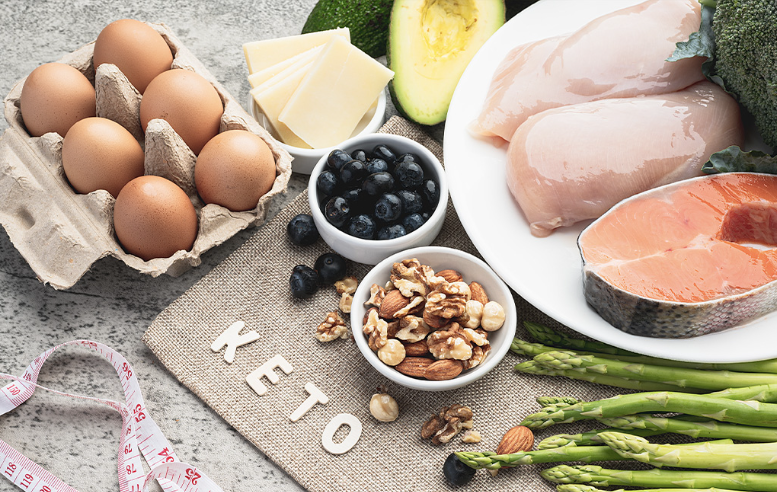
No matter your self care activity, your routine is likely to benefit your daily life. A national survey found that self care can boost your self-confidence, productivity and feelings of happiness when practiced regularly. It may also have physical benefits as well, such as reducing your risk of certain conditions.
Self care is a holistic daily practice that brings joy and restoration to your mind and body.
So, how can you use CBD for self-care? There are numerous ways to incorporate pure CBD into your self care routine — we’re exploring the details below.
How Can You Practice Self Care?
The idea of self care often oversimplifies personal wellness. While pampering yourself with an aromatic face mask can be enjoyable and beneficial, self care extends beyond the surface-level and superficial.
Ultimately, self care involves listening to your own needs and tailoring activities around these necessities. Self care is a holistic daily practice that brings joy and restoration to your mind and body. Whether you prefer rest or activity, solitude or community, self care is all about nourishing your body in the way it needs.
That said, self care starts with self-awareness. Self-awareness is more than introspection; it’s the experience of oneself. Researchers have identified two types of self-awareness:
- Internal self-awareness – This refers to how clearly we view our own values, beliefs, reactions and impact on others. Studies have found that high levels of internal self-awareness correlate with higher job and relationship satisfaction levels, as well as personal control and happiness. It may also decrease feelings of nervousness, stress and sadness.
- External self-awareness – External self-awareness refers to how well we understand how others perceive us in terms of our values, beliefs, reactions and impact. Those with more advanced external self-awareness traits are also more empathetic and open-minded. They may also foster better relationships with family, partners, colleagues and employers.
Ultimately, self-awareness comes down to being attuned to yourself and your own needs — and it may also play a role in how you approach and incorporate cannabidiol (CBD) into your self care routine. When it comes to CBD and self care, self-awareness can manifest in several ways:
- Identifying personal needs – Self-awareness can help you pinpoint specific areas of concern, whether you’re looking to manage stress, improve your sleep, ease physical discomfort, or support your mental health. Once you’ve identified where you need support, you can begin to choose which CBD products best tend to those needs.
- Researching CBD products – Once you’ve identified your needs, it’s critical to conduct the appropriate research to identify the exact products that can meet your self care goals. Seek information that speaks to usage guidelines, potential benefits, cannabinoid content and potential side effects to ensure you’re protecting your body. To ensure a CBD product does not contain any harmful contaminants, such as heavy metals or pesticides, locate the product’s Certificate of Analysis (COA), which typically includes its cannabinoid and terpene profile, potency, contaminant testing and batch numbers.
- Listening to your body – Once you’ve incorporated pure CBD into your routine, practicing self-awareness can help you pay attention to how the product affects your body and mind, such as changes in mood or sleep patterns. For example, if you find yourself still waking up in the middle of the night even after a CBD-infused cup of tea, you can consider increasing your dosage or trying a different product. And, of course, always honor your personal preferences and comfort levels when using CBD. While some people may prefer oils, you may prefer topicals or specific CBD strains and ratios.
What Is CBD and its Benefits?
So, what exactly is CBD? CBD is an active ingredient found in cannabis plants — that is, both hemp and marijuana. Legally, however, CBD can only be harvested from the hemp plant. This was determined by the 2018 Farm Bill, a legislation that federally legalized the cultivation, production and commercialization of industrialized hemp plants, which contain 0.3% or less of (tetrahydrocannabinol) THC, a psychoactive cannabinoid.
Accordingly, incorporating CBD into your self care routine is unlikely to cause effects similar to marijuana, such as distorted thoughts or behaviors. Rather, CBD touts many potential benefits since it interacts with the body’s endocannabinoid system (ECS).
The ECS is found throughout the body. It helps regulate many of the body’s natural processes and maintain homeostasis through cell-signaling.
More specifically, the ECS is made up of endocannabinoids — cannabinoids that naturally occur within the body and are compositionally similar to the cannabinoids found in cannabis plants. They act as messengers and bind to cannabinoid receptors: CB1 (found in the central nervous system) and CB2 (found mostly in the peripheral immune system). As a result, the ECS helps regulate many physiological processes, including:
- Perception of physical sensations and discomfort
- Mood and emotions
- Sleep and wake cycles
- Appetite and metabolism
- Immune function
- Stress response
- Cognition, such as memory and learning
- Reproduction and fertility
When you consume or topically apply CBD as part of your self care practice, the cannabinoids within the cannabidiol interact with the body’s cannabinoid receptors in the same way as endocannabinoids, potentially having the same effects as those listed above. Accordingly, CBD may:
- Ease physical discomfort
- Regulate your mood
- Improve your sleep
- Improve skin health
- Boost cognition
- Support immune function
- Regulate appetite and metabolism
How to Daily Practice CBD Self Care
The first step to incorporating CBD into your self care routine is to determine the type of product that best suits your needs. Generally, you’ll find CBD in a variety of forms, such as:
- CBD oils – Oils are typically taken sublingually, or under the tongue, which allows for quick absorption into the bloodstream through the sublingual glands. This method bypasses the digestive system, enabling faster onset of effects compared to oral ingestion. As such, CBD oils may be an optimal addition if you’re looking to quickly ease feelings of stress or support better sleep. To take CBD oil sublingually, a few drops are placed under the tongue, held there for about 60-90 seconds and then swallowed. You can also add CBD oils to a steaming mug of coffee in the morning or a warm cup of tea before bed.
- CBD topicals – These products are applied directly to the skin for localized relief. When absorbed, the CBD can interact with nearby cannabinoid receptors, and, like sublingual oils, bypass the digestive system to provide fast-acting effects. After a grueling day at the gym, apply CBD topicals over sore muscles and joints or skin rashes to ease any discomfort you may be feeling. Applying CBD topicals to your skin after a deep clean may also help brighten your complexion or ease certain dermatological concerns.
- CBD chewable tablets – Chewable CBD tablets are convenient and easy to use since they come in pre-measured doses. They’re absorbed through the digestive system and may help ease stress and promote relaxation throughout the day. Oftentimes, tablets come in many forms that assist certain needs, such as sleep support, mood support and joint and muscle support, among others.
- CBD gummy edibles – Like chewable CBD tablets, CBD gummies are absorbed through the digestive system and can be formulated to meet many different needs. You can use CBD gummies for energy or for relaxation. Plus, they’re delicious.
To further tailor your CBD self care practice to your body’s unique needs, pay attention to the type of CBD within each product:
- Full spectrum CBD – Full spectrum CBD contains a wide range of cannabinoids, including CBD, THC and other cannabinoids, terpenes and flavonoids. Because of this, it provides what’s called the “entourage effect,” in which the combination of cannabis compounds work synergistically to enhance the CBD’s potentially therapeutic effects. As such, it may provide a more comprehensive and holistic effect compared to other types of CBD. That said, because full-spectrum CBD contains trace amounts of THC, you’ll want to pay close attention to the product's COA to ensure its legal legitimacy.
- Broad spectrum CBD – Broad spectrum CBD contains the same compounds as full spectrum CBD, including cannabinoids, terpenes and flavonoids. However, it does not contain detectable levels of THC. This may be an optimal option for those within the fitness space who are looking for a holistic but THC-free CBD option or those who have concerns about drug testing.
- CBD Isolate – Isolate CBD is the purest and most concentrated form of CBD since it’s isolated from the other compounds of the cannabis plant. There is only CBD in these products — they’re absent of flavonoids, terpenes and other cannabinoids, like THC.
It's important to note that individual experiences with microdosing CBD products may vary, and the effects depend on factors such as dosage, product quality and personal response. It's advisable to consult with a healthcare professional to determine the most suitable CBD product based on your specific needs and circumstances.
Self Care With Zebra CBD
Establishing an effective self care practice begins with tuning into your body and identifying exactly what it needs, whether you’re looking to ease your mind before bed or boost your mental clarity throughout the day. Fortunately, you can effortlessly incorporate CBD into your self care routine, no matter what you’re looking for.
At Zebra CBD, we come equipped with all the CBD must-haves you need to create a well-rounded self care routine, from premium CBD oils and CBD topicals to edible CBD tablets and CBD gummies. Each of our products is made with premium hemp extract to ensure your body is only receiving the best.
Looking for hemp for sale? Bolster your self care and overall wellbeing with Zebra CBD.
Source:
Mental Health First Aid. How and Why to Practice Self-care. https://www.mentalhealthfirstaid.org/2022/03/how-and-why-to-practice-self-care/
Harvard Business Review. What Self-Awareness Really Is (and How to Cultivate It). https://hbr.org/2018/01/what-self-awareness-really-is-and-how-to-cultivate-it
USDA. Farm Bill. https://www.usda.gov/farmbill
Healthline. A Simple Guide to the Endocannabinoid System. https://www.healthline.com/health/endocannabinoid-system
The New York Times. What Are the Benefits of CBD? https://www.nytimes.com/2019/10/16/style/self-care/cbd-oil-benefits.html
Medical News Today. Full-spectrum vs. broad-spectrum CBD: What is the difference?. https://www.medicalnewstoday.com/articles/full-spectrum-cbd-vs-broad-spectrum-cbd









